South Sudan: What is the fighting about?
- Published
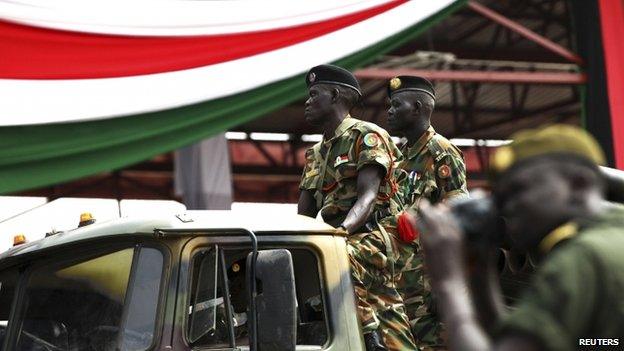
More than a million people have fled their homes in South Sudan since fighting broke out in December between government and rebel forces. President Salva Kiir says it was a coup attempt, blaming soldiers loyal to former Vice-President Riek Machar for the trouble, but Mr Machar denies this.

Where is South Sudan?
South Sudan is the world's newest nation, in the centre of Africa bordered by six countries. It is rich in oil, but following decades of civil war it is also one of the least developed regions on earth - only 15% of its citizens own a mobile phone and there very few tarmac roads in an area bigger than Spain and Portugal combined.
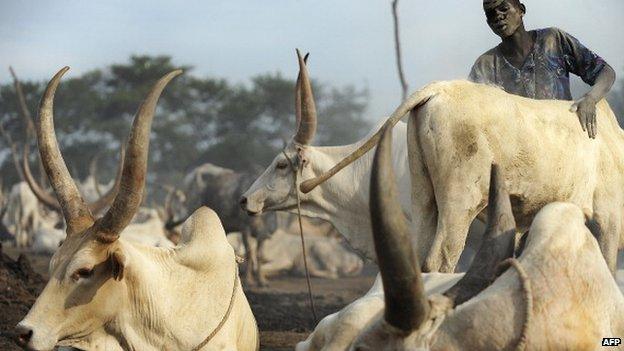
This makes the Nile River, which flows through regional centres, an important transport and trade route. Cattle are also central to life in South Sudan - a person's wealth is measured by the size of their herd.

Why are there tensions?
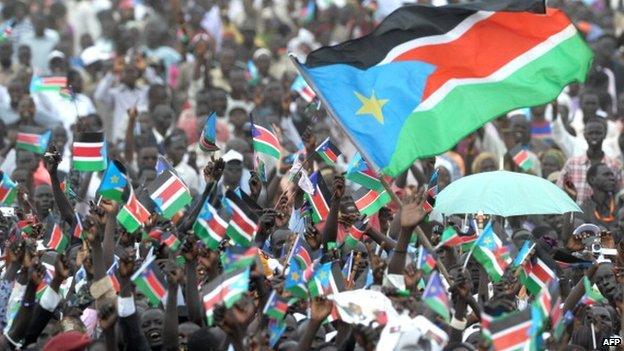
Since South Sudan overwhelmingly voted to break away from Sudan in 2011, the government's main concern has been to get oil flowing following disagreements with Khartoum - production only resumed in April.
There have been a few small armed rebellions, border clashes and deadly cattle feuds - but these have all taken place far from the capital, Juba. Signs of friction within the governing SPLM party came in July when President Salva Kiir, an ethnic Dinka - the country's largest group, sacked his deputy Riek Machar, who is from the second largest community, the Nuer.

Was there a coup plot?
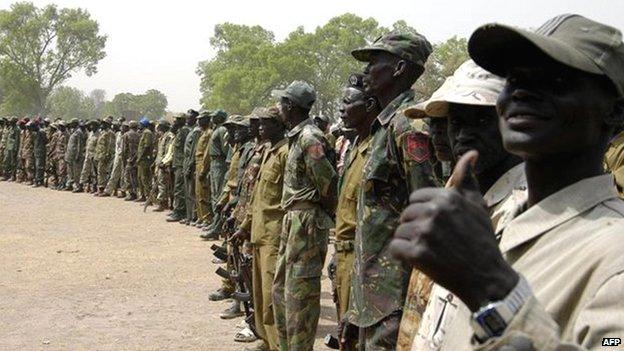
It is not clear. It started as a political squabble and has escalated into ethnic violence. President Kiir believes there was and has pointed the finger of blame at Mr Machar.
He denies the accusations, but has publicly criticised Mr Kiir for failing to tackle corruption and said in July that he would challenge him for the SPLM's leadership. Mr Machar also has a chequered history with the SPLM, leading a breakaway faction in the 1990s.

How serious is the fighting?
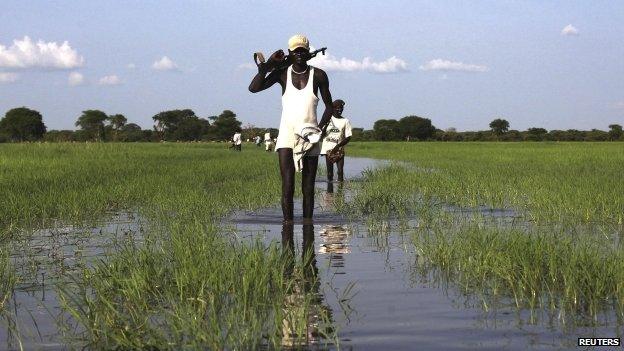
Pretty bad. The army has split and there have been clashes around the country.
There have also been mass killings along ethnic lines, even though both Mr Kiir and Mr Machar have prominent supporters from the other's community. Forces backing Mr Machar have seized the key town of Bentiu, capital of the oil-producing Unity State.
The country is awash with guns after the decades of conflict and there is a history of ethnic tension, which politicians could whip up if they believe that could help them gain, or remain in, power.

What is being done?
Under international pressure, the two sides signed a peace deal in May in the Ethiopian capital, Addis Ababa. The deal paves the way for a permanent ceasefire followed by the formation of a transitional government, the drafting of a new constitution and, eventually, fresh elections.
A previous truce, agreed in January, collapsed in acrimony, with a swift resumption of hostilities.
The latest accord is also fragile, but increasingly urgent. Aid agencies have warned that the country faces severe food shortages and potential famine if relief supplies remain blocked and if displaced farmers are prevented from returning home.
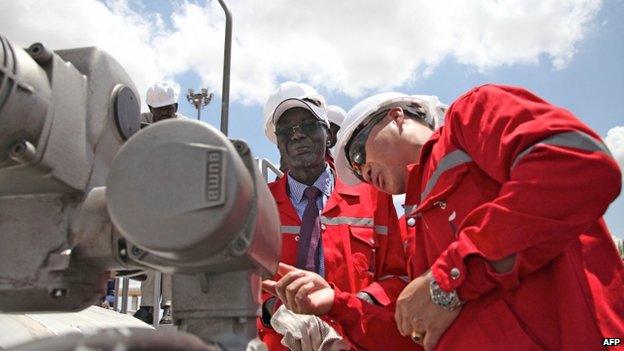
There are also fears that a reduction in oil production could have repercussions on world markets. Many foreign nationals have been evacuated.
The UN, which has more than 7,500 troops on the ground and has requested reinforcements, has promised it will not abandon civilians. However, experts say its forces will not be able to prevent violence across such a vast territory.